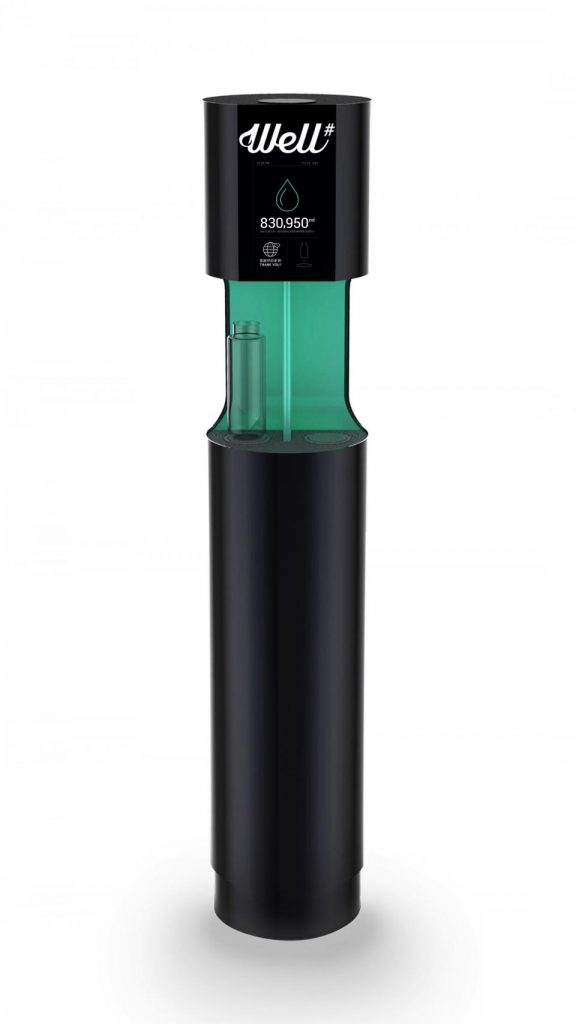By Keshia Hannam , CONTRIBUTOR
SEP 29, 2016 @ 12:38 AM
Bottled water’s perception isn’t entirely positive, and yet it’s still literally a billion dollar business. Zion Research published a report at the end of 2015 wherein it was found that the global bottled water market sat at a valuation of around $170 billion in 2014. By 2020, that figure is expected to “reach approximately $280 billion, growing at a compound annual growth of around 8.5% between 2015 and 2020.”
Though the fuel of this trend may be increased health awareness and the changing lifestyle of consumers, the packaging surrounding bottled water and subsequent waste, as well as the threat of health concerns relating to the plastic casing, are potential hindrances to market growth as well as negatively impacting the environment. This is of particular concern, especially given in many circumstances, healthy and environmentally-friendly alternatives are readily available. In light of this, there are steadily increasing numbers of social enterprises rising to the challenge of addressing the salient issue of clean water supply, both in the developed and developing world.
One such organisation is WHOLE WORLD Water, which was was launched on 22 March 2013: World Water Day. Brainchild of Slow Life Symposium (an initiative run by Thailand/Maldives based luxury eco resort Soneva) participant Karena Albers, a documentary film maker, and Jenifer Willig, former CEO of the (RED) campaign, WHOLE WORLD Water (WWW) has an audacious goal of contributing $1 billion a year from the sale of filtered bottled water towards safe and clean drinking water projects for communities around the world. The model works on a membership basis, targeting the likes of Virgin Hotels, Banyan Tree, Tao Restaurant Group and The Ritz-Carlton Charlotte, who are all enrolled in the program. Belonging to the organization entitles them the use of the WHOLE WORLD water bottle, designed by esteemed product designer Yves Behar and fuseproject. Members filter their water on site, bottle and sell it, contributing 10% of the proceeds to the WHOLE WORLD Water Fund.

“At Virgin, we believe business must be a force for good, using its influence and resources to help find solutions to some of the world’s major issues,” said Sir Richard Branson, Founder at Virgin Group and advisor to WWW board. ‘This [WHOLE WORLD Water] model reduces shipping pollution, financial and environmental costs, and it’s good for business.” Good for business translates to an average of a 28% increase to the bottom line for the likes of the Taj, Marriott and Fairmont, which are all resorts that participate. According to WWW, the Small Island States in Asia have been the first responders as they are faced with the challenges of plastic waste and how it is destroying the environment, and hence their businesses. Albers estimates “with scale, the hospitality and tourism industry can contribute $1 billion per year or more to help eradicate this global issue.” Though the industry moves slowly and collective buy-in can be a time consuming process, the collective is now in over 200 resorts mainly in Asia and America, have invested in over 17 projects worldwide and over 250,000 people now have access to clean, safe drinking water.
In Hong Kong, Urban Spring are prototyping water dispensers that provides safe and affordable water everywhere by filtering the main water supply through their dispensers, working toward a primary purpose of doing away with plastic bottles. With the plan to launch in February 2017, the sleek design of the model has meant the initial iterations have been popular amongst students in universities, and in locations such as shopping malls, museums and clubhouses. Hong Kong people consume on average 1.5 million bottles of water everyday, but could actually total on average as much as 5 million tonnes per day, contributing a robust amount of waste to landfill and oceans. This development aids in mitigating the mass of bottles that make their way into waterways and could be part of a solution for the “Smart City” Hong Kong has made a major focus in the last two years, starting with its inclusion in the Chief Executive’s Policy Address in 2015 and 2016.
If bottled water is proven to be a force that cannot be overcome, Thank You Water believes at least it can do social good. In Australia, the social enterprise has omitted the traditional investors/shareholders model, leveraging private donors and strategic partners to be able to donate 100% of their profit to projects. The company began in 2008 in response to the World Water Crisis, when over 900 million people didn’t have access to safe drinking water on a daily basis, yet the Australian bottled water industry was worth an estimated $600 million a year. As of May 2016, they had donated 4.1 million AUD to people in need, getting safe water to 194, 736 people.

